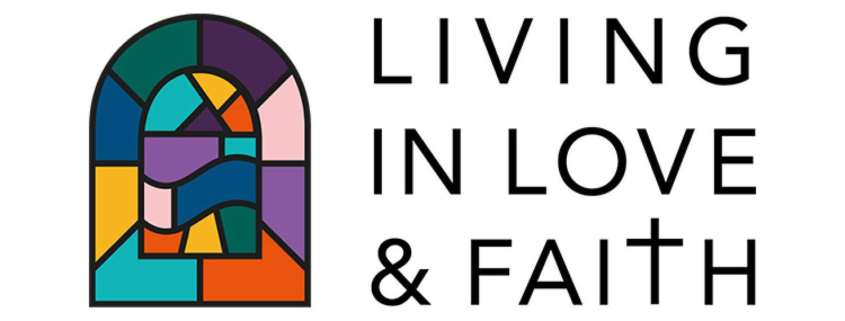I write to make a number of points in response to your letter to the Archbishops of 26 June. Your letter makes a series of charges against the bishops of the Church of England and I have no doubt has caused hurt to LGBTQIA+ Christians and their friends and family. Your threat of schism means that we find ourselves on the front pages of the national press on this issue even in the midst of a General Election campaign when the world faces so many challenges and problems.
- The extent of the Alliance
You say that your network is supported by more than 2,000 clergy within the Church of England but I see no real evidence that this is the case (and I note that the Catholic signatories seem not to have signed the latest letter).
I know that there are many clergy and lay people in our own Diocese who themselves could not in conscience use Prayers of Love and Faith. They are loved and cherished. I have a deep respect for those who hold these views on a genuinely difficult question of theology and ethics and am in regular dialogue with them. I also accept that there will be a need to recognise those who hold this view in good conscience in the provision of safeguards and in the provision of specific and defined episcopal ministry.
But the number of clergy and congregations who say they require the degree of legal/provincial differentiation proposed in your letter is very small in my experience. Almost every congregation contains a range of opinion and for the most part people are content to accept this diversity, solve problems locally and get on with the mission of God. If the proposals currently before Synod are followed there is literally no risk whatsoever that churches and ministers who support the Church’s current teaching would have to act against their conscience or depart from that doctrine.
- A departure from doctrine therefore B2
You argue that what is proposed in the Synod papers is clearly indicative of a departure from the doctrine of the Church of England in an essential matter. I genuinely do not believe that this is the case. The settled position reached after over more than ten years of debate and consultation is to make three modest but helpful changes towards greater inclusion but each builds on existing practice. This is not a watershed moment.
- The authorisation of Prayers of Love and Faith (even as stand alone services) simply gives alternative liturgical provision to enable services which could legally happen without PLF. All of you as signatories have been part of a Church for many years in which these services have happened.
- The replacement of Issues in Human Sexuality with new pastoral guidance is proposing to extend to clergy the same freedom of conscience in the ordering of their relationships as has been given for more than 30 years to lay Christians (including lay ministers). All of you as signatories have been content to be part of a Church which offers this freedom of conscience to the majority of its members.
- The proposal to remove existing disciplines from clergy entering same sex marriage is also a modest change. When this happens under the present disciplines, clergy are not subject to CDM procedures nor deprived of their living nor their license. The new proposal is simply to remove the requirement for such clergy to receive a formal rebuke and to be able to move to new roles (and therefore to enable ordinands in same sex marriages to be treated in an identical way). All of you as signatories have been part of a church in which clergy in same sex marriages continue to minister.
Not a single one of these proposals therefore amounts to a change in the Church of England’s doctrine of marriage. The B2 process you have consistently proposed is in any case limited to the first of these proposals; and appears simply to be a device for blocking any kind of change.
I readily accept that a B2 process would be needed for the Church of England solemnising same sex marriage in Church. This would be a change of doctrine. I accept that there is not yet a settled majority for this across the Church of England. These modest changes are therefore a step towards love and inclusion which enables us to minister in better ways to the whole of our society.
As I have argued previously, a successful B2 process on PLF would, I believe, make it harder for parishes and clergy to opt out of prayers which would have a much higher authorisation.
- Western elitism?
You level against the bishops again the charge of Western elitism and ignoring the views of the Global South. However, your own letters pay no attention to the very considerable consensus at the Lambeth Conference in 2022 about accepting different views on sexuality yet still walking together. You make no mention of the persecution of LGBTQIA+ Christians in many parts of the world, often tacitly supported by the Church. Nor do you recognise that many Provinces of the Communion are genuinely debating these matters and contain a rich variety of views.
- Catastrophising language
Once again your letter deploys doom laden and catastrophising language to attempt to put pressure on the Bishops and the General Synod (“a matter of deep regret”; “the cause of incalculable damage to the structure, integrity and mission of the national church”). I wonder, where is your sense of Scriptural perspective and the themes of mercy, love and joy and the priority of gospel proclamation?
- Fracturing the body of Christ
You have wrapped your threats in veiled language: “we are proposing a positive way forward…”. You argue that if these extremely cautious and modest proposals are enacted you have will have “no choice” (but you do in fact have a wide range of choices) “but rapidly to establish what would be in fact a de facto “parallel Province”.
I am afraid this has to be named for what it is: a proposal for a deep and disproportionate schism in the life of the Church of England and, surely, a proposal which will grieve Anglicans in every place.
On the one hand you are openly criticizing the bishops for uncanonical processes. However, at the same time, you declare your intention to act unilaterally, outside any formal and transparent process of consultation or Synod or legal structure or theological reflection or recognisable ecclesiology but through a set of actions determined in closed rooms.
The mind of the majority House of Bishops now seems to me to be settling on questions of pastoral reassurance after many months of uncertainty. There is a now a reluctant acceptance of the need for some regional provision of episcopal ministry to recognise divergent views on marriage and same sex relationships, supported by a House of Bishops statement, Code of Practice and Reviewer. However, the House is also clear that going beyond these arrangements to diverse jurisdictions, a third province and a church within a church undercuts the very essence of Anglican ecclesiology and represents a red line we cannot cross.
- A new stream of ordination candidates?
Finally, you threaten action with immediate effect to open up a new pre-ordination stream for potential ordinands in partnership with “orthodox” bishops. You relate the current fall in ordinands to the current process on the basis, I would argue, of hardly any evidence. But guidelines for training and the funding of training and pathways for training all have to be agreed by the House of Bishops and the General Synod. They are not matters for unilateral action by one party within the Church.
And finally….
I am sorry to have to write to you in these terms. I do respect your views on marriage and sexuality and hold many of you in high regard. However, I believe the letter you have been persuaded to sign is a deeply unhelpful and misleading contribution to our present debate. I believe GS2358 represents a reasonable way forward for the Church in this most difficult of questions, albeit a costly compromise from all perspectives and that the General Synod should unite behind it.


